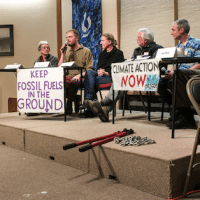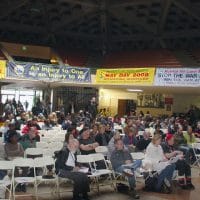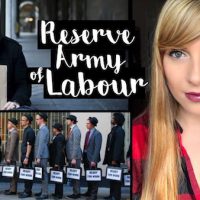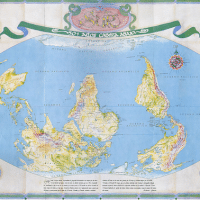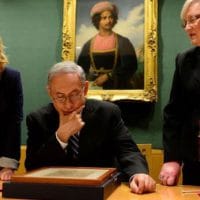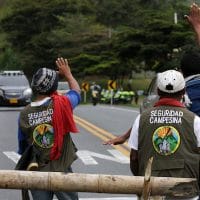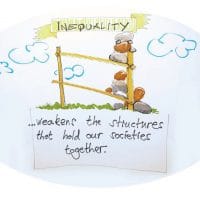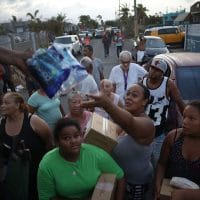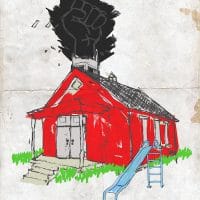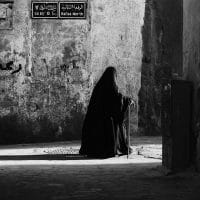-
‘Valve-Turners’ putting lives on the line for our climate emergency
In October 2016, while President Barack Obama was still in office, five climate change activists, including me, cut chains and closed emergency shutoff valves on five tar sands oil pipelines in four states. In one morning, we briefly stopped the flow of all Canadian tar sands oil into the United States.
-
The New York Times and the U.S. Border wall: A love story
The New York Times’ radical reasonableness offers us a clear vision of the ways one can continuously adapt its position to the political context as to be in position of respectful negotiation with the status quo.
-
The FCC’s plan to end Net Neutrality: What you need to know
The details of FCC Chairman Ajit Pai’s plan to destroy Net Neutrality are out. And they’re even worse than expected. Our lawyers and policy experts are reviewing the reports and gathering details about Pai’s plan. This is our first read on the most important details you need to know about this proposal. We will update this post as new details emerge.
-
Venezuelan company lets 55 tons of flour rot
The company received more than US$85 million in government subsidies in 2015 for the production and distribution of food at fair prices.
-
Political economy of labour repression in the United States
Why is the book called “Political Economy of Labor Repression in the United States”, and not the “History of Labor Repression in the United States”? Considering it is a rather comprehensive survey of labour history in the US, how do you explain your choice of the title?
-
Precarious Work! The Reserve Army of Labor
The Reserve Army of Labor
-
Yemen, the most forgotten country in the world
Since May 2015, the Kingdom of Saudi Arabia has sustained a permanent military invasion against Yemen, the poorest country of the Middle East. The House of Saud argues that the lands and air attacks are due to the advancement of the Ansarolá movement, born in the core of the Houthis tribe which exercises the Zaydi shi’a Islam.
-
A century after the Bolshevik Revolution
In the world we’re living in, it’s not enough to solve the tension between capital and work, the ongoing crisis of civilization urgently demands that we address the tension between capital and nature, which is currently compromising the existence of life in our planet.
-
‘I made this… but didn’t get paid’: Garment workers appeal directly to shoppers
Factory workers draw attention to mistreatment and unpaid wages with notes hidden inside clothing items.
-
‘It being clearly understood…’: What the Balfour Declaration tells us about Israel
Few documents as brief as the Balfour Declaration have had as devastating an impact as this historical document. I do not want to minimize the European colonization of the Americas, an utterly ravaging catastrophe for the Indigenous peoples of these continents.
-
100,000 indigenous people join national strike and the repression continues
Colombia is in an environment of almost permanent mobilization of social and political movements due to the government’s failure to follow through on the agreements it has made in different spaces of negotiation, its continued campaign of violence against members of social movements, and its silence in the face of renewed paramilitary violence in the territories of Colombia.
-
Women and work
It has often been claimed that the radical documentary practice of the 1970s attended to class politics to the exclusion of gender. This was one of the core arguments for a staged practice of photography.
-
Cold, angry, and surrounded by chicken
For six months, reporter Saša Uhlová worked in the lowest-paid manual jobs in the Czech Republic, having a go at work in a hospital laundry room, a chicken processing plant, as a cashier in a supermarket, in a razorblade factory, and in a waste-sorting plant. All these jobs are indispensable, yet they are severely underpaid. How do people make ends meet on just a few hundred pounds a month?
-
Sustaining neoliberal capital through socio-economic rights
In a 2013 contribution aimed at influencing the post-2015 development agenda, seventeen UN Special Rapporteurs recommended that the Sustainable Development Goals (SDGs) should include a goal on the provision of social protection floors.
-
Radicalizing women’s rights internationally
The recent “burqa bans” in Austria and Quebec appear to be troubling legal manifestations of the rising tide of Islamaphobia in Europe and North America.
-
Spanish state to Catalonia: “Surrender or we’ll take you over”
Catalonia’s Premier Carles Puigdemont officially declared an independent Catalan republic on October 10, only to announce the immediate suspension of independence to allow for negotiations with the conservative Spanish People’s Party (PP) government of Prime Minister Mariano Rajoy. The declaration of independence formalised the result of the October 1 referendum held under extreme police repression: in it 90% of those voting (43% of the electorate) said ‘Yes’ to independence.
-
The crisis in Puerto Rico is a racial issue, here’s why
Last week, CNN’s Jake Tapper interviewed Sen. Bernie Sanders (I-Vt.) and asked if he thought President Donald Trump’s punishing response to hurricane-ravaged Puerto Rico had something to do with “race or ethnicity.” Sanders hesitated a bit but ultimately said, “We have a right to be suspect.”
-
There can be no revolution if we do not overcome racism
Cosmas Musumali participated in a seminar on Pan-African Thought at the Florestan Fernandes National School, which is famous in Brazil for its social and political commitment.
-
Making ‘Black Lives Matter’ in our schools
How do you kill Mr. Phil and nothing happens?” According to parent Zuki Ellis, this is the question students at J. J. Hill Montessori Magnet School in St. Paul were asking just a few days into summer. On June 16, the Minnesota police officer who fatally shot Philando Castile, or Mr. Phil as students knew him, was acquitted on all charges.
-
The biggest impediment to Saudi women was never the driving ban
No matter their age, Saudi women are treated like minors — to the point that many require permission from their sons to work, study, or travel.

